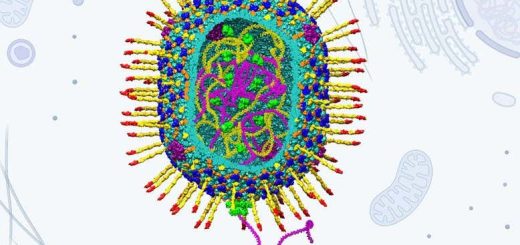Bird flu viruses have mutations that might help them spread to humans
A human immune system protein called butyrophilin helps to stop bird flu from infecting people, but some viruses currently circulating have mutations that might overcome this barrier
By Clare Wilson
28 June 2023
Ducks at a market in Cambodia, near to where two people were infected with bird flu earlier this year
TANG CHHIN SOTHY/AFP via Getty Images
Mutations that might help bird flu viruses cross to humans are present in many of the strains of the H5N1 virus currently causing mass outbreaks in wild birds – although more genetic changes would be needed to cause a pandemic in people.
The finding stems from the discovery of a human immune system protein that is usually important in stopping bird flu from infecting people.
In the four flu pandemics of the 20th and 21st centuries, the viruses had genes that meant they could overcome the newly discovered antiviral protein. While such mutations aren’t sufficient to cause a pandemic, “the less we see of them, the better”, says Massimo Palmarini at the University of Glasgow, UK.
Advertisement
The current bird flu outbreak, involving a subtype called H5N1, has been circulating in wild birds in huge numbers since about 2021 and has caused mass die-offs of threatened species, such as Dalmatian pelicans in Greece.
It has also affected farmed poultry and mammals that prey on birds, and there have been a few cases in people, but so far it hasn’t evolved the ability to spread easily between mammals – so there is intense interest in understanding how likely that possibility is.
Palmarini and his colleagues have shed light on this question by looking at flu viruses growing in cells in a dish. They studied an antiviral protein called butyrophilin, which is present in cells of the airways and lungs and comes in slightly varying forms in different mammalian species. They found that the human version stops most bird flu viruses from reproducing.


